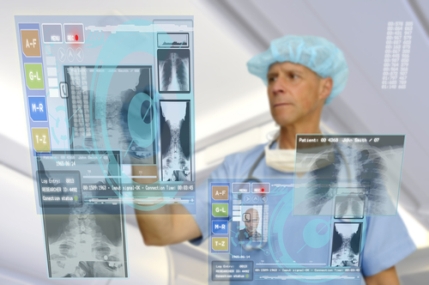Despite some recent controversy surrounding the Da Vinci surgical robot, Dr. Dwight D. Im of Baltimore's Mercy Medical Center believes that robotic surgery has great promise for women that need gynecological surgery.
Dr. Im is the director of the Gynecologic Oncology Center at Mercy, and Intuitive Surgical, the company that manufactures the Da Vinci robot, recognizes him as a "Gynecologic Oncology Epicenter Surgeon."
The Epicenter Surgeon designation indicates that Dr. Im is qualified to train surgeons from all over the world concerning how to use the Da Vinci robot to perform gynecological surgery.

Image via Shutterstock
The FDA recently approved the Da Vinci robot for single-site gynecological surgeries. Single-site means that the patient undergoes only one incision during the surgery. The two single-site surgeries for women include hysterectomy and oophorectomy, which is removal of an ovary. With the robot, each surgery takes about one hour to perform.
In a recent television interview, Dr. Im pointed out that robotic surgery has multiple advantages for patients undergoing gynecological procedures. Robotic surgery means smaller incisions and faster recovery time, with some patients able to go home either on the day of their surgery or the day after. In many cases, women can return to work within one to two weeks.
Another advantage of robotic surgery is improved visibility within the body for the surgeon. When the surgeon sits at a desktop station and directs the motions of the robot, he or she can see the operating area 10 times better than a surgeon performing a traditional surgery.
Still, Dr. Im acknowledges that robotic surgery isn’t for every woman. On occasion, laparoscopic surgery and even traditional surgery provide better alternatives. The key is for women to communicate with their doctors.
For example, Dr. Im recommends that women ask their doctors how many robotic surgeries they have performed in the past. "There has been a lot of negative publicity about the robot and the system. It is a great system in the right hands, so you need to know exactly how experienced your surgeon is," Im said in an interview with WBAL-TV.
"I've done over 1,500 cases in the last few years, and so you need to know how many of these have you done. What kind of complications have you had? A patient as a consumer needs to know exactly what kind of product she's getting."
Edited by
Alisen Downey